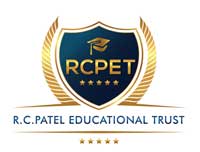Vision
- The continuing well-being of the average person through the study of plant sciences.
- To attain excellence in Botany (Plant Sciences) education with strong ethical principles to serve stakeholders.
Mission
- The mission of the department is to use both conventional and non-conventional tools to understand plant processes, develop human resources, and provide hands-on experience in frontier areas of plant sciences.
- The goal is to foster a scientific mindset in pupils, encouraging open-mindedness and curiosity. Additionally, it aims to raise awareness about natural resources and the need of discussing them.
- To promote ethics, moral values, and a lifelong learning mindset.
- Explore the diversity of living organisms.
- Improve plant sciences knowledge through innovative research, benefiting society and the country.
Goal
- The goal is to provide a curriculum that inspires and motivates students to pursue careers in Botany and related fields, demonstrating the intellectual rewards of their choice.
- Our goal is to provide cutting-edge facilities and achieve excellence in education.
- To establish the Department as the university's top botany center.
PEO
- PEO1 : Enhancing graduates' and postgraduates' capacity to utilize Botany knowledge through a multidisciplinary approach..
- PEO2 : Prepare graduates with entrepreneurial skills, research abilities, and motivation for further study and lifetime learning.
- PEO3 : Empowering pupils with ethical and social principles to become responsible individuals.
CO's
Taxonomy of Angiosperms
- To study aims, principles and methods in taxonomy.
- To study taxonomic structure of Angiosperms.
- To study Cronquist system of classification.
- To study recent APG system of classification and evolutionary trends.
- To study morphological peculiarities and biological importance of plants.
Plant Physiology
- Understand the basics of plant physiology.
- Understand the metabolic processes essential in plants.
- Understand the implementation of knowledge in plant physiology in the field of research.
- Know the applications of plant physiology in sustaining agriculture and natural plant diversity.
Techniques in Plant Science
- Concepts, tools and techniques related to in plants.
- Different methods used for genetic transformation of plants.
- Various case studies techniques related to basic and applied research in plant science.
Plant Development And Reproduction
- Able to differentiate vascular tissue
- Able to identify embryological stages
- Expertise in tissue culture technique
ANGIOSPERM SPECIAL PAPER –I
- Able to differentiate and identify various Angiospermic plants
- Able to classify flowering plants
- Expertise taxonomic structure and nomenclature of Angiosperm
ANGIOSPERM SPECIAL PAPER II
- Able to know Cronquist`s system of classification.
- Able to know phylogeny and interrelationship of different orders and taxa.
- Able to understand biosystematics and ultra structural systematic.
